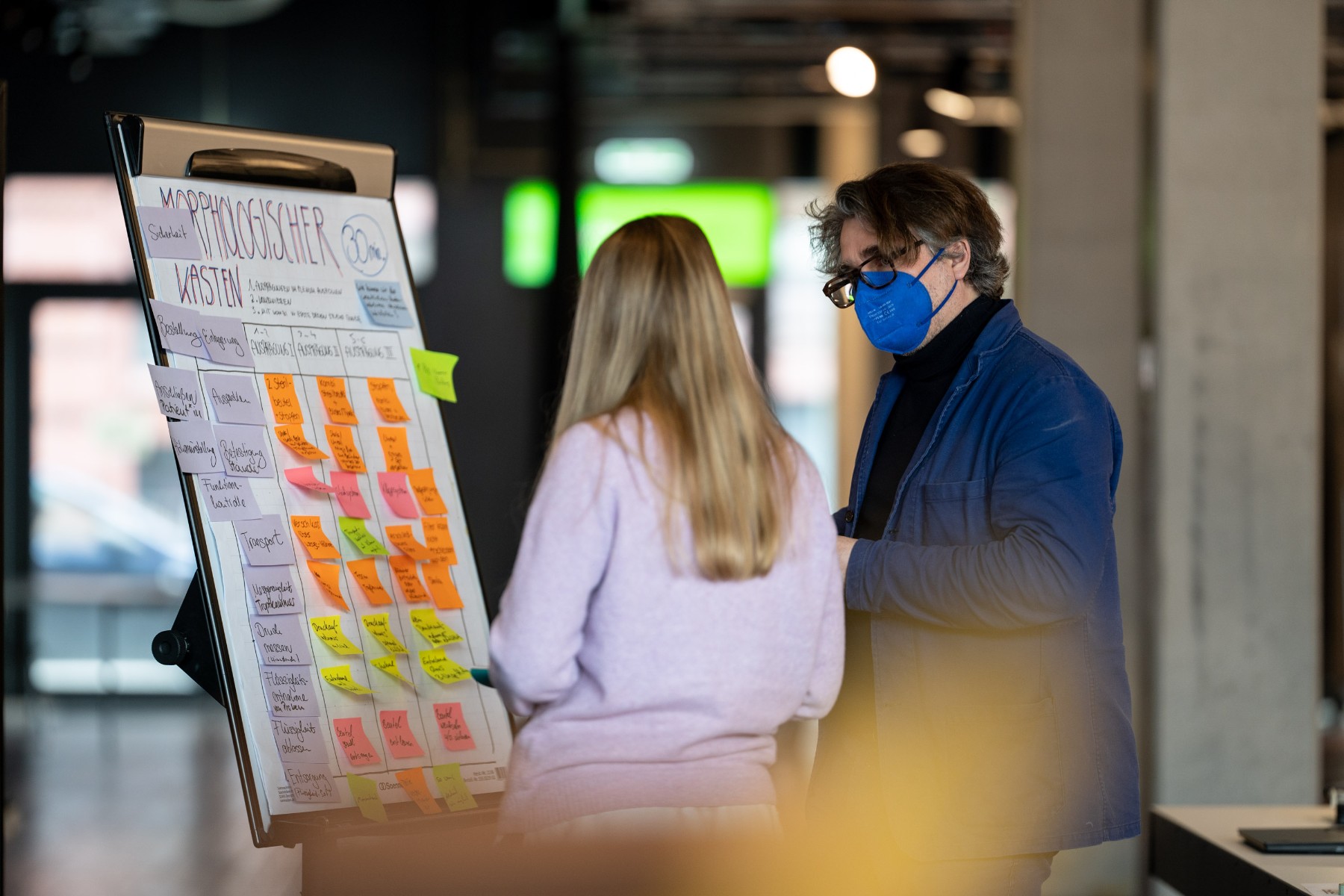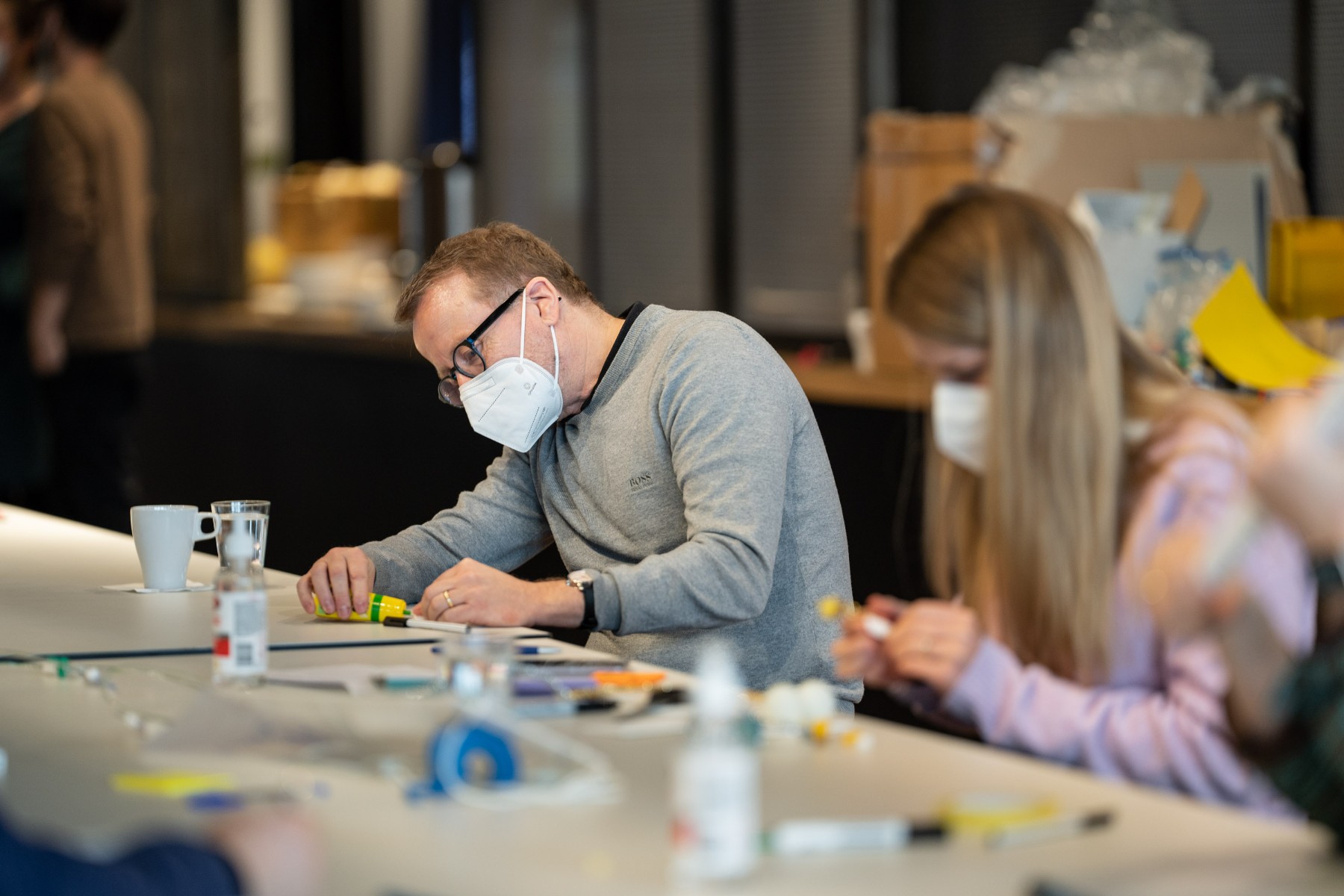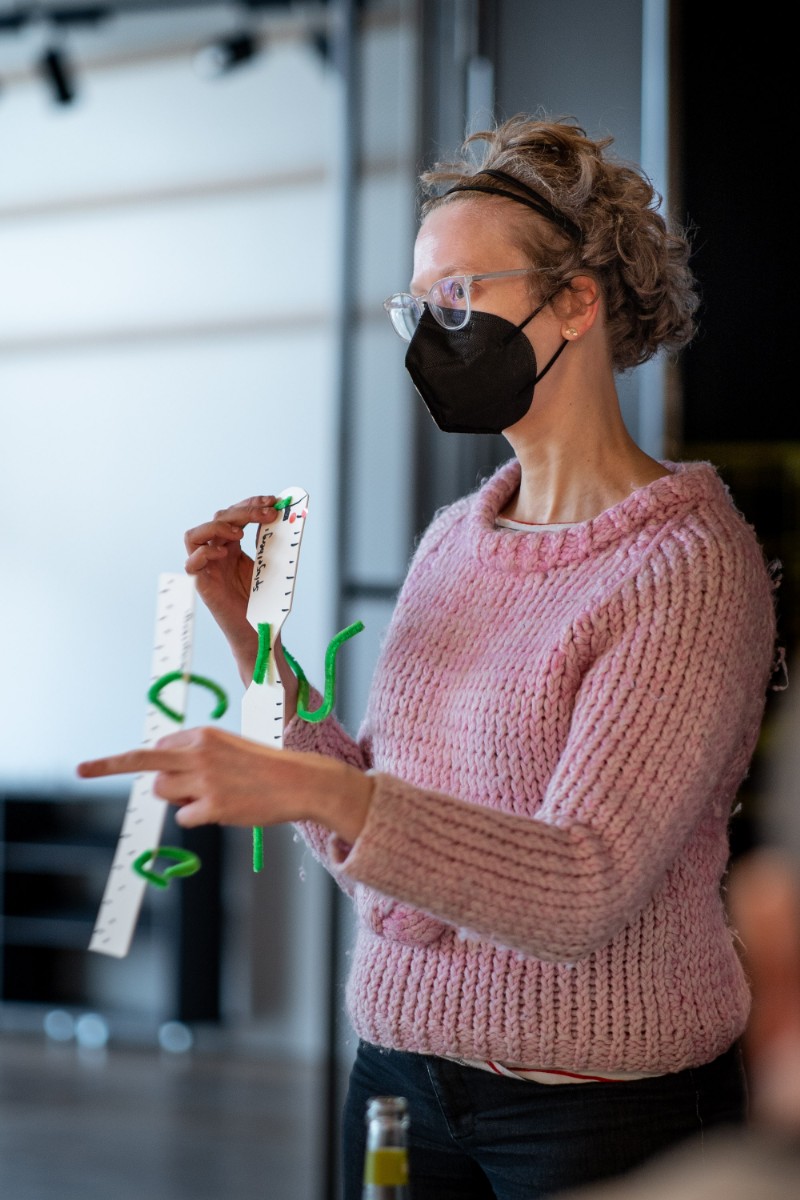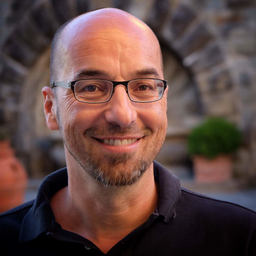"I also want to take a bold approach to something and not always be confronted with restrictions straight away."
Stefan Paschko is also convinced of this. Even before the regulation, progress in medical technology was slow and conservative. Product launches in the industry usually take 5-10 years, not only in terms of production, but also in terms of the consumer system. Doctors and nursing staff have to be familiarised and trained with the new product every time it is launched. That takes time. The additional documentation of all existing products means that innovation in the company is now the exception. Every project, every new idea is put on the back burner. For employees in development, the additional bureaucratic work means missing out on key technological developments on the market. To give his employees' motivation a boost, Stefan Paschko therefore signed up for the Cross Innovation Lab with two developers and the sales manager. Here, the team met the two creative minds Gerrit Kuhn and Sophie Heins, who worked with Spiegelberg to realise the facelift of the EVD set. "We operate in a very small cosmos here, always swimming in our own soup, especially now with all the tests and additional documentation. However, I don't always want my employees to just work on documents and wanted them to be part of a different process in which they can work creatively and with external parties."
With this attitude, Stefan Paschko is one of the few managers in the SME sector to take the plunge and leave business as usual behind. For many, the hurdle to participating in externally led innovation processes is still a big one. Behind formats such as the Cross Innovation Lab, there are fears of unexpected costs and excessively long breaks in internal projects. Doubts quickly spread. Even among the employees. That's why Stefan Paschko deliberately put together his team. "I believe that the easiest thing for many people is to keep repeating what they are used to. Often out of fear of making decisions. I don't want that. I also want to approach things with courage and not always be confronted with restrictions."



